Afraid to smile? Do you want better fitting dentures that fit securely, are comfortable and look natural?! We are able to create all types of natural looking dentures that once expertly fitted, will restore your smile and transform your appearance putting an end to any denture embarrassment and self-consciousness.
We are able to offer all aspects of denture solutions in a variety of materials , for anything from a single tooth solution to a set of complete upper and lower dentures!
With the use of implants , dentures can be made to clip onto these, locking the dentures in place and stopping them from moving around. This is a really effective solution whose benefit is seen instantly. As the single most effective treatment for ill fitting and loose dentures, dental implants will provide you with the healthy, attractive and long-term solution that makes your dentures feel more secure.
This is a very common scenario used routinely by ourselves to great effect and it is life changing for many people immediately!
The minimum requirement for denture stabilisation is two dental implants in your lower jaw. In some instances we can even work and modify an existing denture.
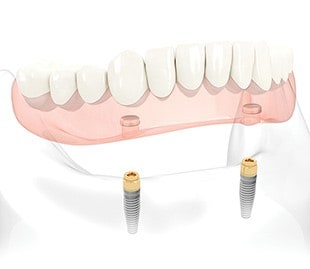

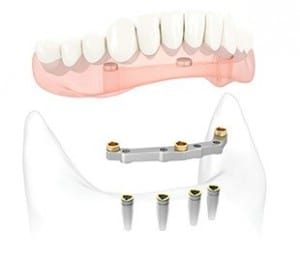
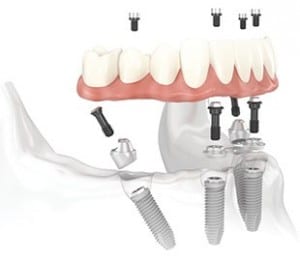
Dentures are removable false or fake teeth made of a range of different materials including nylon, acrylic, porcelain and sometimes even metal. They are designed to fit snugly over the gums and replace missing teeth and to aid with eating, speech and for cosmetic appearance. Sometimes, if a gap is left by missing teeth, the teeth on either side may grow into the gap at an angle and a denture or dental implant can prevent this.
Dentures are usually needed when several teeth are missing; one or a couple of absent teeth can be managed used sole replacement dental implants and/or a bridge.
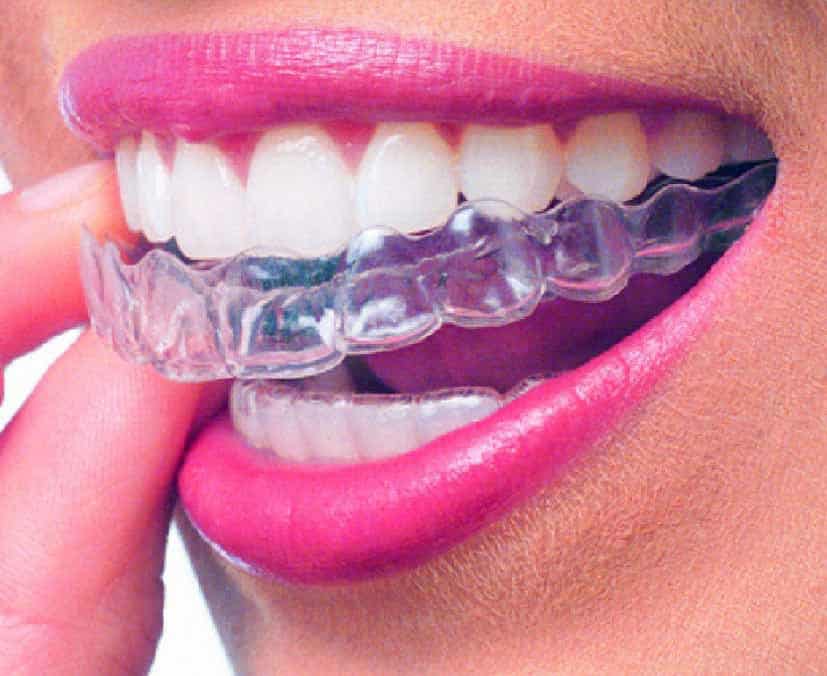
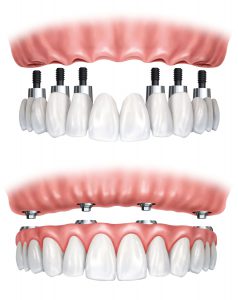

Dentures have always been the butt of jokes and humour but these days, modern dentures are far more realistic and natural-looking and also much more comfortable than they have ever been.
One of the most important factors to ensure dental comfort is to make sure the dentures are a good fit. Dentures that are loose or move will never be comfortable and will also affect speech.
Regular dental reviews are important as over time, your gums and bones will change shape and the dentures will begin to not fit as well. Your dentist can adjust or modify your dentures or it may be time for a new set.
Dentures which are a good fit and well cared for should remain securely in place but there are some things you can do to ensure they fit well.
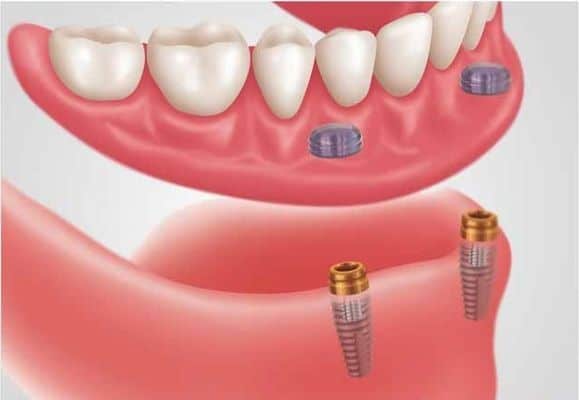
Each mouth is different but snap-in dentures are generally considered one of the best choices when it comes to stability and usability. These dentures are held in place using dental implants if there are no existing teeth or they anchor onto any remaining teeth in the jawline. Snap-in dentures are unique because of the locator attachments embedded within the tissue side of the denture. The locator attachments snap onto the dental implants or the locator receptors. This makes them removable and convenient and easy to keep clean. Snap-in dentures are usually used when a patient doesn’t have any teeth but still has enough bone to support a dental implant.
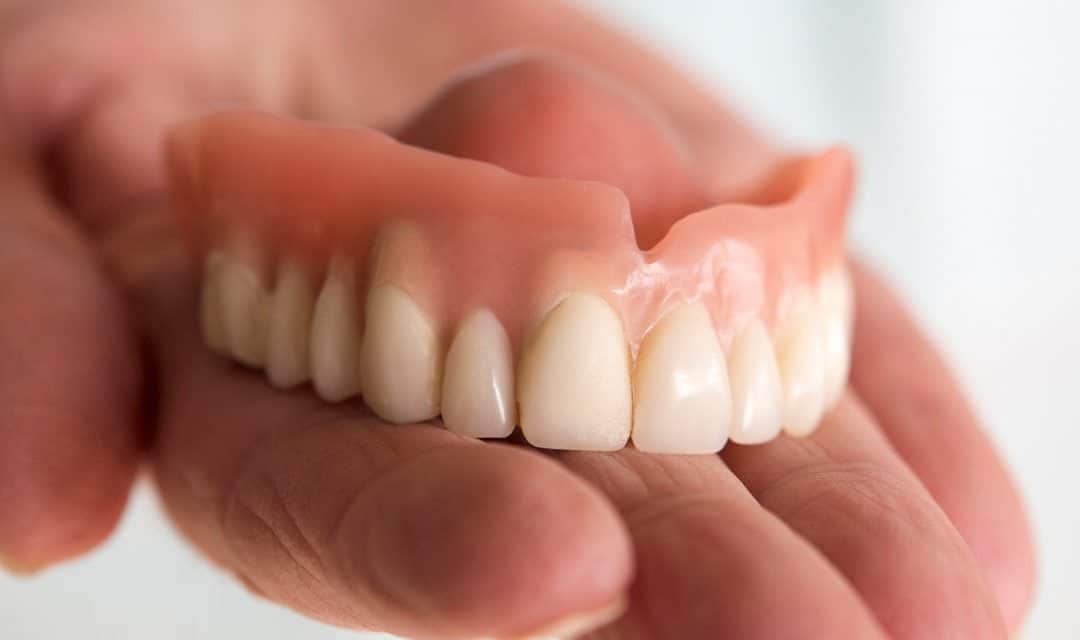
Dentures can be made from lots of different materials including composite resin, porcelain, acrylic resin and acrylic. Most commonly, acrylic and porcelain are used for making custom denture teeth. Porcelain is a much harder substance than acrylic which makes it more durable. It is better able to withstand daily wear and tear. Acrylic does degrade and wears down more quickly but on the plus side, it is far less prone to cracking and splitting so accidental breakage is far less of a problem. Porcelain teeth tend to put more pressure on the jaw bone and gums so are not ideal for those who are experiencing bone loss. Usually, acrylic dentures are the best option in this situation. There is not a huge amount of price differential between porcelain or acrylic dentures so the choice is normally based on other factors.
Porcelain dentures are easier to clean because they present a hard surface which bacteria find it difficult to thrive on. However, they are also easier to break so care must be taken when cleaning them.
Acrylic dentures have microscopic indentations which provide a great home for oral bacteria. Acrylic dentures need to be very well cared for on a daily basis as otherwise bacteria can multiply very quickly leading to bad breath and other health complications.
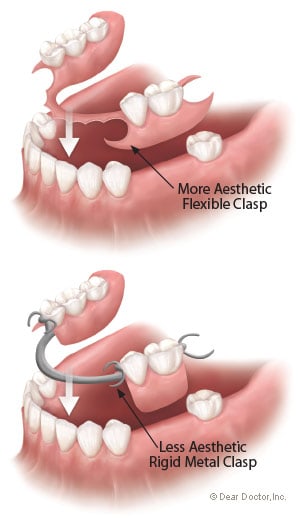
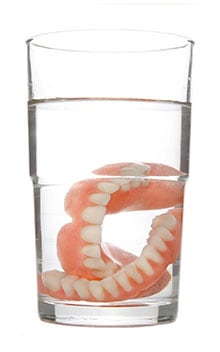
At first, your dentist may advise you to carry on wearing your dentures at night because they are new. Later on, it is advisable to take them out as this allows your gums to rest as you sleep.
If you do take you dentures out at bedtime then they need to be kept moist. Some people use a glass of water with a denture cleaning solution or you can use a polythene bag containing some damp cotton wool or a denture-cleaning solution. This stops the denture material drying out and changing shape. Make sure the dental solution is designed for overnight storage as these products differ from those used to manually clean the dentures when they are removed from the mouth.
Dentures can harbour tiny particles of food and also develop plaque just like regular teeth. This can cause bad breath, gum disease, oral thrush and decay in other teeth.
Dentures should be cleaned twice a day morning and night when you brush your teeth. Brush your dentures with toothpaste or soap and water and then soak them to remove any food particles. Use denture cleaning tablets which help remove bacteria and also any staining. Brush them as you would do your normal teeth but don’t scrub too hard and it is better to use a manual toothbrush rather than an electric one where it is easy to exert too much pressure.
Dentures are easy to break so always clean them over a bowl or sink containing water or a folded towel so they are protected if you do drop them.
